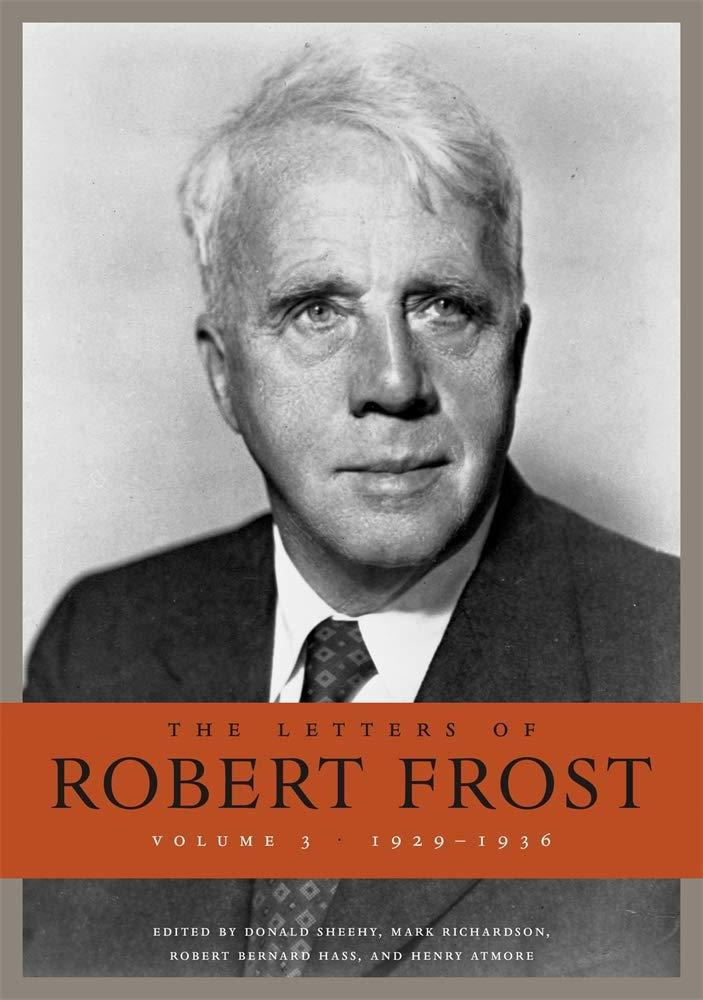On April 29, 1934, Robert Frost wrote to his friend Louis Untermeyer that his “favorite poem long before I knew what it was going to mean to us was [Matthew] Arnold’s ‘Cadmus and Harmonia.’” In the original myth, Cadmus, founder of Thebes, and his wife, Harmonia, endure the deaths of their five children as retribution for Cadmus’s killing a serpent prized by the god Ares. Arnold’s version picks up late in the couple’s story, after the “grey old man and woman” have begged to be transformed into “placid and dumb” snakes, “far from here” among the grasses and mountain flowers of Illyria. There, “The pair/Wholly forgot their old sad life, and home,” writes Arnold. No longer reliving “the billow of calamity” that “Over their own dear children roll’d,/Curse upon curse, pang upon pang,” Cadmus and Harmonia are at last “placed safely in changed forms.”
A few days later, Frost again wrote to Untermeyer, reporting that his youngest daughter and favorite child, Marjorie, had died of a postpartum infection. “Here we are Cadmus and Harmonia not yet placed safely in changed forms.” But the letter describing Marjorie’s final days, one of the most powerful Frost ever wrote, is itself a change of form from the raw distress that it describes:
Marge always said she would rather die in a gutter than in a hospital. But it was in a hospital she was caught to die after more than a hundred serum injections and blood transfusions. We were torn afresh every day between the temptations of letting her go untortured or cruelly trying to save her. The only consolation we have is the memory of her greatness through all. Never out of delirium for the last four weeks, her responses were of course incorrect. She got little or nothing of what we said to her. The only way I could reach her was by putting my hand backward and forward between us, as in counting out and saying with overemphasis You—and—Me. The last time I did that, the day before she died, she smiled faintly and answered All the same, frowned slightly and made it Always the same.
Though it feels cruel to notice it, you can find in this tragic last scene between father and daughter the primal elements of a Frost poem: that “counting out” and meaning-making by selection and “overemphasis” is his prosody in action. He dreamed of sentences stripped of their words, pared down to their “sentence sounds,” those “brute tones of our human throat that may once have been all our meaning.” Here the entirety of English has been painfully reduced down to six words, Frost’s three and Marjorie’s three. The “brute tones” and the accompanying pantomime alone communicate the meaning. Once extraneous language enters the picture, confusion and frustration—Marjorie’s smile turning into a frown—soon follow.
Frost’s “not yet” (“Here we are Cadmus and Harmonia not yet placed safely in changed forms”) was wishful. He and his wife, Elinor, had good reason to hope that the prophecy of Arnold’s poem had finally revealed its entire “meaning”: Marjorie was the third of their six children to die. A son, Elliott, was lost in 1900 at the age of four, after a homeopathic remedy for cholera failed. A baby daughter died three days after her birth in 1907. But “Cadmus and Harmonia” bore further, still unimagined, implications. In 1938, four years after Marjorie’s death, after years of marital discord, Elinor died of heart disease, refusing to call Frost to her deathbed. Their son Carol, troubled by mental illness since childhood, slid into despair and killed himself with his hunting rifle in 1940. His body was discovered in the kitchen of their stone farmhouse by his fifteen-year-old son, Prescott. Frost found reasons to blame himself for every one of these tragedies. His two living children, Irma and Lesley, sought a protective distance from the maelstrom that had swept most of their family away.
And so by 1940, at the age of sixty-six, Frost, perhaps the most famous and beloved American poet, had suffered a series of losses almost unimaginable to the fortunate among us. By one way of counting, he was more or less alone in the world.
